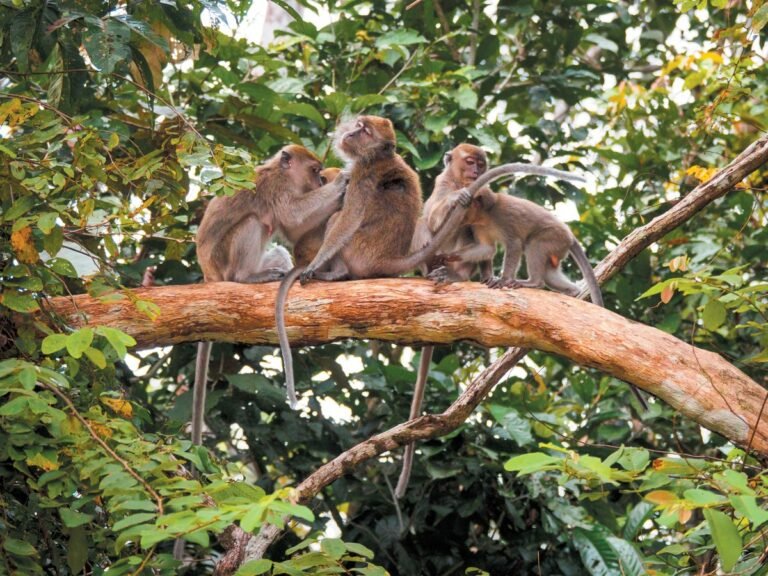September 1, 2025
2 min read
The Primal Pull of People Watching
Our social voyeurism may have deep evolutionary roots
Whitworth Images/Getty Images
The human fascination with watching others—whether through reality TV, Instagram stories or overheard drama—is often dismissed as nosiness. But new research suggests this impulse may be a social survival tool dating back millions of years.
To explore the origins of social curiosity, Laura Lewis, a comparative and developmental psychologist at the University of California, Santa Barbara, and her colleagues studied how human children between four and six years old from San Francisco’s Bay Area and adult chimpanzees responded to certain videos showing members of their respective species. The results, published in the Proceedings of the Royal Society B, show that both groups preferred watching social interactions over scenes involving solitary individuals—even forgoing small rewards to see the former.
“These findings demonstrate that social information is important, rewarding and valuable for humans and other primate species,” Lewis says. “It suggests that social information was also important for our shared primate ancestors who lived around 25 million years ago and that for millions of years it has been adaptive for primates to gain social information about those around them.”
On supporting science journalism
If you’re enjoying this article, consider supporting our award-winning journalism by subscribing. By purchasing a subscription you are helping to ensure the future of impactful stories about the discoveries and ideas shaping our world today.
Among the children (but not the chimps), the researchers noticed another pattern: as they grew older, boys became increasingly interested in watching scenes of social conflict, such as a tug-of-war over toys or one child crying while another yelled, whereas girls developed a stronger preference for positive interactions, such as play or hair grooming. The researchers hypothesize this result could reflect differing socialization patterns and evolutionary pressures particular to humans.
Another recent study, published in Animal Cognition, explored peer-watching behavior in long-tailed macaques. Both female and male macaques showed more interest in aggressive interactions than in peaceful grooming, and both paid more attention to videos of familiar individuals. The study’s lead author, Liesbeth Sterck, a primatologist at Utrecht University in the Netherlands, says the latter behavior mirrors the way humans are drawn to the social lives of people they recognize—whether family, friends or movie stars. Interest in aggressive interactions, which are likely to reveal shifts in dominance or signal potential threats, echoes findings that humans are especially attuned to watching conflict in media. “Keeping track of the power balance in your own group likely has prime value for primates, including humans,” Sterck says.
Gillian Forrester, who studies comparative cognition at the University of Sussex in England and was not involved in either study, says social attention is key to maintaining a good reputation. In ancient humans and other primates, reputational damage can bar access to food and mates, incite physical confrontations and, in extreme cases, lead to potentially fatal ostracism. With so much at stake, primates evolved to keep a close eye on group members. “Modern humans retain this keen attention to other people’s social interactions as an evolutionary adaptation,” Forrester says—so people watching might just pay off.
It’s Time to Stand Up for Science
If you enjoyed this article, I’d like to ask for your support. Scientific American has served as an advocate for science and industry for 180 years, and right now may be the most critical moment in that two-century history.
I’ve been a Scientific American subscriber since I was 12 years old, and it helped shape the way I look at the world. SciAm always educates and delights me, and inspires a sense of awe for our vast, beautiful universe. I hope it does that for you, too.
If you subscribe to Scientific American, you help ensure that our coverage is centered on meaningful research and discovery; that we have the resources to report on the decisions that threaten labs across the U.S.; and that we support both budding and working scientists at a time when the value of science itself too often goes unrecognized.
In return, you get essential news, captivating podcasts, brilliant infographics, can’t-miss newsletters, must-watch videos, challenging games, and the science world’s best writing and reporting. You can even gift someone a subscription.
There has never been a more important time for us to stand up and show why science matters. I hope you’ll support us in that mission.
